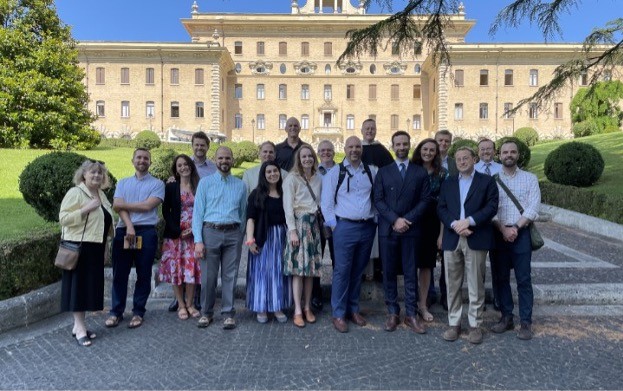The Challenge of AI and the Response of the Church
The Challenge of AI and the Response of the Church
The challenges of A.I. are on everyone’s mind. These are ethical challenges, and challenges to our self-understanding as human beings. Are we more than computers? Should we relate to our machines in the same way that we relate to ourselves, to others and to God? And where is the response of the Church in these times?
The Church’s response is indeed not absent, as can be seen in the Pope’s recent Message for the World Day of Peace (January 1, 2024), but also in an extensive study that is the product of the work scholars from various institutions have conducted in cooperation with the Dicastery of Culture and Education since 2020 (we began in the midst of the pandemic). Among them are four faculty members of the DSPT (Marga Vega, James Kintz, Fr. Anselm Ramelow, O.P., and Fr. Justin Gable, O.P.), with DSPT student Joshua Peck acting as the secretary. It has now been published under the title Encountering AI: Ethical and Anthropological Investigations (AI Research Group for the Vatican Centre for Digital Culture).
Encountering AI: Ethical and Anthropological Investigations
As our school is located in the Bay Area and in the vicinity of Silicon Valley, our DSPT faculty has shown that it accepts the challenge that our location presents. It is our responsibility to respond to the questions of our time and location, and as a philosophy department we are especially equipped to build bridges between science and faith, technology and theology. This work is going to continue in future work groups, organized by the Dicastery of Culture and Education and including our colleagues at Santa Clara University.
A first part of the book looks at how current applications in social media, text and image generation, the military, education, workplace and health care are reshaping important social domains. Such questions are put in conversation with the tradition of Catholic social thought, highlighting the contemporary and future impact of AI programs on our relationship with God, the world, and each other.
A second part looks at the theology and metaphysics of the human person. Can computers be persons, too? Can they have human rights? Should we baptize them? Can they enter into relationships with us that reflect the relationality of the Trinity, in whose image we are made? It is in this part particularly that important philosophical questions arise and need to be answered. Here, the contribution of our DSPT faculty was strongest, the result of three years of monthly online meetings with other scholars, especially from North America. Teaching courses on human and artificial intelligence, philosophical anthropology, the concept of personhood, on human rights, personal identity, personhood and neuroscience, and indeed a whole three-year Philosophy Project, Person, Soul and Consciousness (2017-2020), have equipped us and our students well for engaging in these questions. This work will be continued in the coming years, particularly with reflections on AI and human agency in light of neuroscientific developments such as synthetic biology, and the impending questions of moral decision making of humans and machines in the future.
